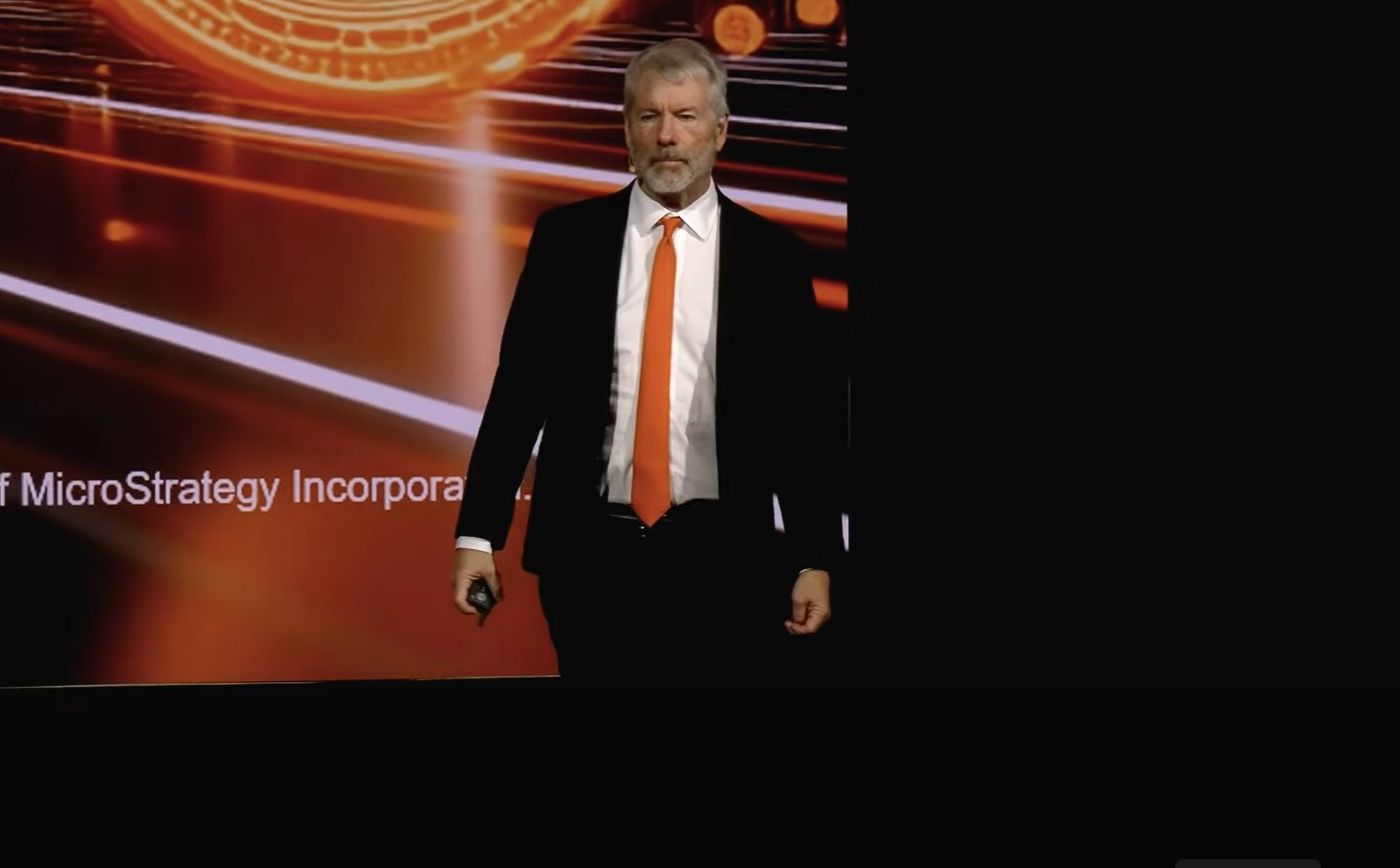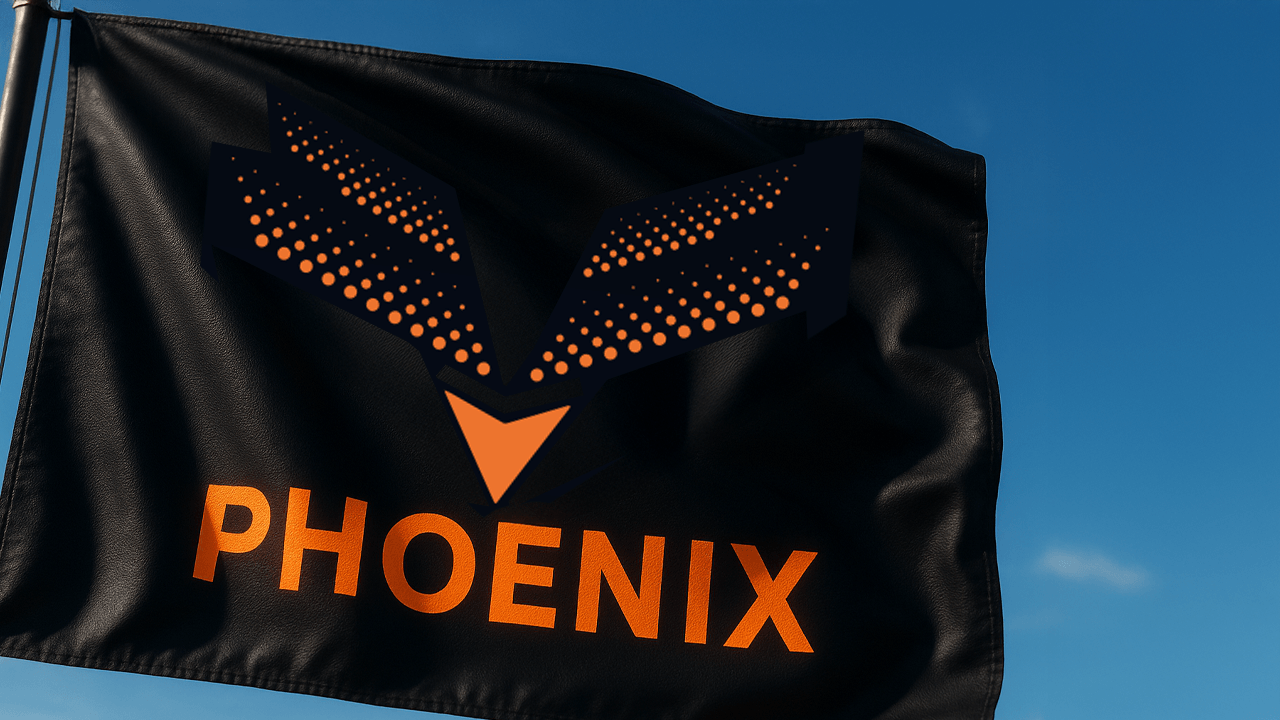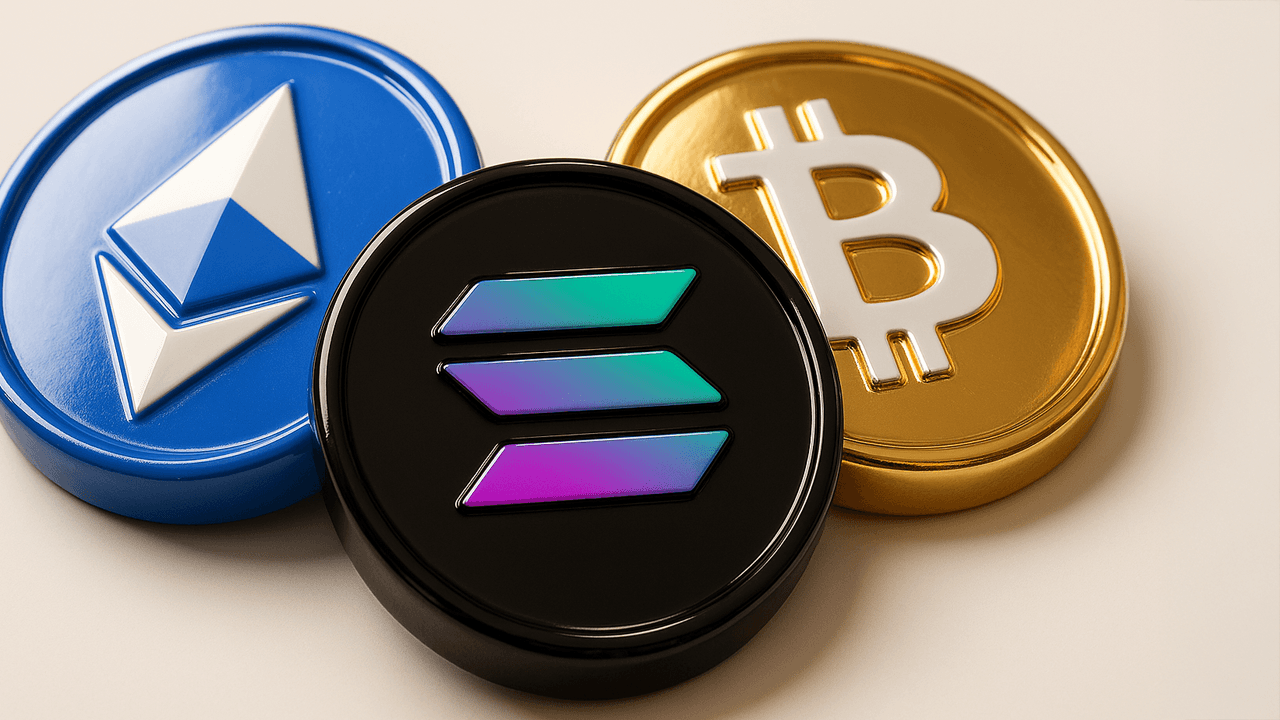
At the Bitcoin for Corporations 2025, MicroStrategy executive chairman Michael Saylor turned his keynote into a direct challenge for one of the technology sector’s most cash-rich giants. Speaking to an audience of chief financial officers and treasury executives, he argued that Microsoft should shift tens of billions of dollars from share buybacks and short-dated Treasuries into Bitcoin, calling the cryptocurrency “the universal, perpetual, profitable merger partner” that outclasses every other treasury asset in the artificial-intelligence age.
Microsoft Needs Bitcoin: Saylor
Saylor framed the comparison starkly. “Microsoft is up 18% a year for the past five years. Bitcoin is up 62%,” he said, adding that the S&P 500’s compound growth rate of roughly 14% defines the hurdle rate by which corporate capital allocation is judged. “Normalize everything against that cost of capital and you discover Microsoft’s real out-performance is 4%. Bitcoin’s is 48%. Bonds are negative. Why would you hold the thing that’s destroying capital when the apex asset is compounding almost 50% above the cost of money?”
He then zeroed in on Microsoft’s current balance sheet mix. “If Microsoft buys bonds, you’re destroying 99.7% of your capital over ten years,” he declared. “Buying your own stock is only marginally less catastrophic—you’re vaporizing 97%. Buying Bitcoin would be ten times better than buying back MSFT.”
Saylor’s argument rests on his conviction that Bitcoin inaugurates a third monetary epoch. “Gold was nineteenth-century money; sovereign debt was twentieth-century money. Bitcoin is twenty-first-century money—the first liquid, fungible capital asset with no counterparty,” he said. He dates the institutional “year zero” for Bitcoin to 2024, “the moment the SEC blessed spot ETFs and FASB signaled fair-value accounting.” By that chronology, 2025 is “year one” and the window for first-mover advantage is already narrowing.
To quantify the upside, Saylor revealed that his team ran Microsoft through the open-source “Bitcoin 24” treasury-modeling tool. Four scenarios were stress-tested: sweeping excess cash into Bitcoin, substituting dividends for coin purchases, replacing buybacks with accumulation, and adding a thin layer of leverage. “Depending on the mix, it adds anywhere from $155 to $584 a share—one to five trillion dollars in enterprise value—while taking less risk,” he said. “I’m asking you to stop surrendering the capital you just spent five years winning.”
The emotionally charged moments of the keynote came when Saylor linked treasury policy to operational strain. “When you divest yourself of $200 billion, you amplify every risk factor in your own prospectus,” he warned. “You put massive pressure on your employees, then on your customers—lock them into three-year contracts, force them to buy everything when they only want some things—then your competitors complain and the regulators sue you. All of it because you’re chasing quarterly volatility you could hedge instantly by holding a non-correlated hard asset.”
He pressed the point with a thought experiment aimed squarely at Microsoft’s board. “If you could buy a hundred-billion-dollar company growing 60% a year at one-times revenue, would you do it? What if you could do it every year, forever?” he asked. “That’s Bitcoin. The irony is that the least risky acquisition imaginable is perceived as risky by consensus finance.”
🇺🇸 MICHAEL SAYLOR JUST CALLED MICROSOFT TO BUY $75 BILLION OF #BITCOIN AND MAKE $4 TRILLION
IT’S COMING!!! 🚀 pic.twitter.com/ujyHwquA0e
— Vivek⚡️ (@Vivek4real_) May 6, 2025
Saylor reserved his longest uninterrupted passage for a final appeal: “Rich people are not rich because of a future expectation of cash flows; they’re rich because they own hard assets. I would rather be invested in a rich company than in a company that gives away its money and promises to work ever harder and raise prices on customers ad infinitum.”
He added: “You can cling to twentieth-century capital—treasury bills, stock buybacks, dividends—or you can embrace the future, capitalize on Bitcoin, and turn a decapitalization spiral into progressive growth. It’s good for your customers, your employees, your shareholders, your country, and your legacy. Adopt Bitcoin.”
The shorthand $75 billion bet circulating in conference corridors reflects Microsoft’s authorized buyback and two years of forward dividends folded into a single digital-asset allocation. Notably, Microsoft shareholders voted against a proposal to add Bitcoin to the company’s balance sheet during the firm’s meeting on December 10.
At press time, BTC traded at $96,521.

Featured image from YouTube, chart from TradingView.com

Editorial Process for bitcoinist is centered on delivering thoroughly researched, accurate, and unbiased content. We uphold strict sourcing standards, and each page undergoes diligent review by our team of top technology experts and seasoned editors. This process ensures the integrity, relevance, and value of our content for our readers.



















